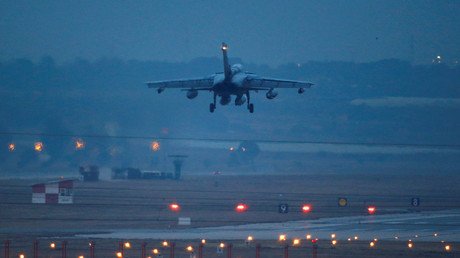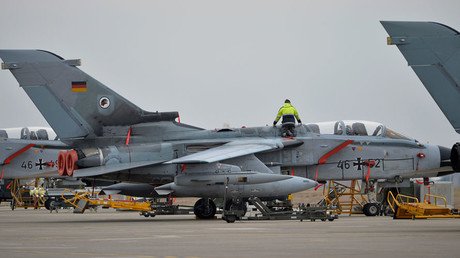German MPs vote for troop withdrawal from Turkish Incirlik base after visitation row with Ankara
The German parliament has voted to approve the transfer of its troops from Turkish Incirlik Air Base to Jordan, following tensions with Ankara.
461 out of 569 lawmakers in the Bundestag (the German parliament) voted on Wednesday to transfer soldiers and equipment from Incirlik to a new site near Al-Azraq, Jordan.
The decision to pull out of Incirlik Air Base came after the refusal by Turkish authorities to allow members of the Bundestag to visit the base. It is said to be linked to Berlin’s refusal to extradite several Turkish army officers accused of involvement in last year’s attempted coup.
“The Bundeswehr is a parliamentary army, which is subject to control of the Bundestag,” read the official statement from lawmakers.
In order to carry out its constitutional duties effectively, the statement said, it must be possible for MPs to visit the troops where they are stationed.
“Visitation rights are non-negotiable for us,” said the CDU’s Henning Otte.
Over the next few weeks, the approximately 280 German troops as well as six Tornado jets and tanker aircraft stationed at Incirlik will make their way to Jordan.The contingent at Incirlik was deployed to the base in response to the Paris terrorist attacks in December 2015.
Since Germany is part of the US-led coalition fighting Islamic State (IS, formerly ISIS/ISIL) in Syria and Jordan, the Bundeswehr is suspending its operations for two months.
The Left Party and the Greens supported the withdrawal from Turkey but also favored a wider withdrawal from the Middle East, with Left politician Gregor Gysi accusing the federal government of being a “war party.” Gysi also said that reconnaissance photos taken by German planes were being passed on by the Americans to the Turkish government, who in turn used them to identify and bomb Kurdish positions. Instead, Gysi argued, Germany should play a purely mediatory role in the Middle East.
However, the Left and the Green proposal was denied by 460 to 109 votes on the recommendation of the Foreign Affairs Committee.
Germany started to look for a possible replacement for Turkey’s Incirlik Air Base as already strained relations between the two countries deteriorated sharply mid-May, when Ankara blocked a scheduled meeting of German MPs with troops stationed at the base.
The decision came after Berlin granted asylum to a number of Turkish nationals, who were accused by Ankara of being part of the botched coup in the country in July 2016. Those concerned reportedly hold diplomatic passports and were stationed in NATO facilities in Germany at the time of the attempted coup.
Turkey made a similar move last year, also preventing a delegation of lawmakers from visiting the base, following the German parliament's decision to brand the Ottoman Empire's massacre of Armenians in the early 20th century as genocide. Ankara firmly denies that any genocide took place.
READ MORE: ‘Frau Hitler’: Turkish newspaper depicts Merkel as infamous Nazi dictator
Germany has also criticized Turkey’s crackdown on alleged anti-government activists in the wake of the failed military coup. Over 50,000 people – suspected of being sympathizers of US-based cleric Fethullah Gulen whom Ankara accused of masterminding the coup plot – were arrested and some 150,000 officials were fired or suspended, including soldiers, police officers, teachers and public servants.
Ankara also targeted journalists, academicians, judges and other key figures in the country in what Germany sees as a major shift away from democracy.














